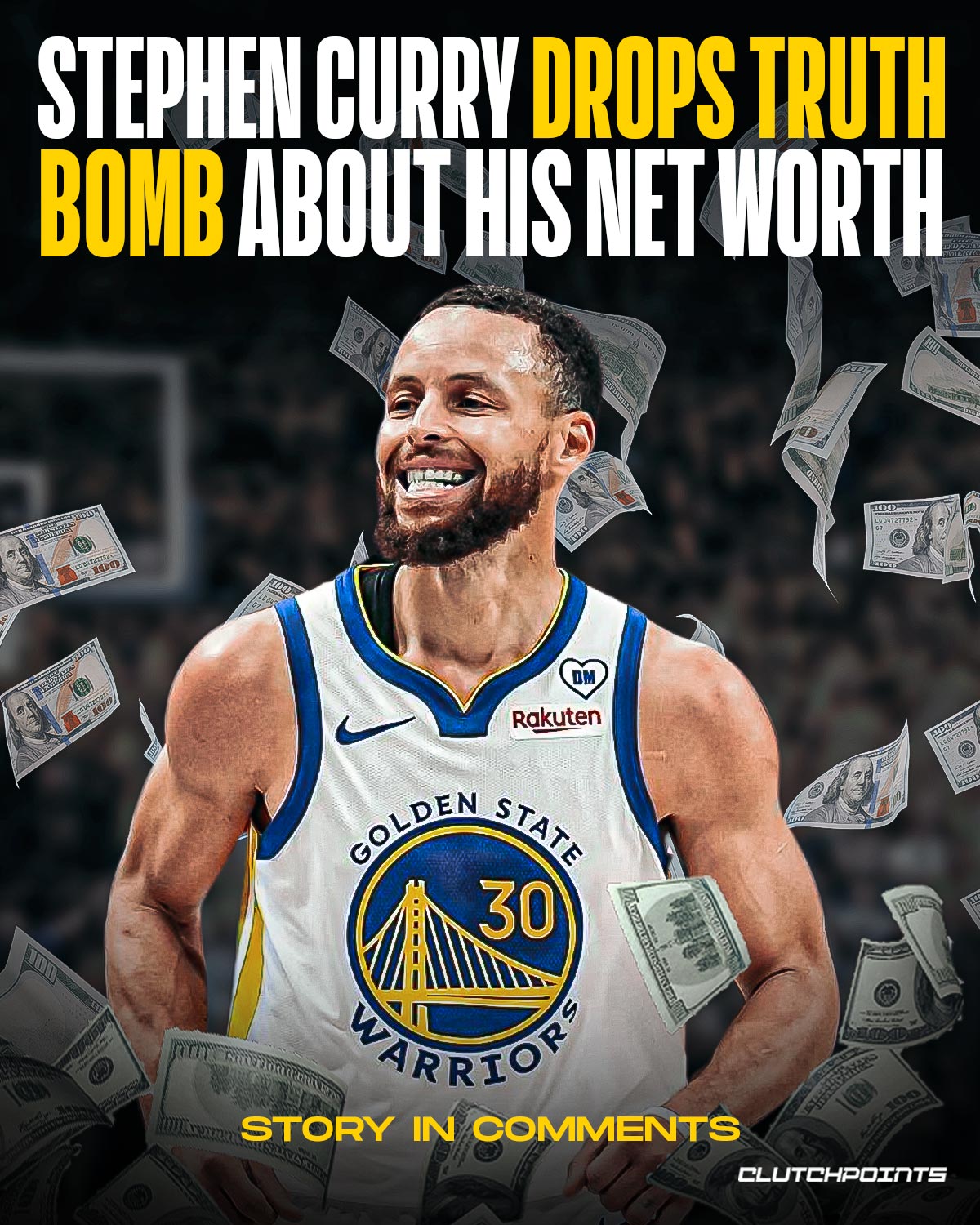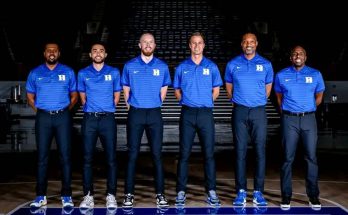Stephen Curry, the Golden State Warriors icon, has often been associated with staggering numbers: three-point records, championship rings, MVP awards, and headline-making contracts. But when the conversation turned recently to his net worth—commonly estimated at around \$240 million—he offered an unexpected response: “I don’t know, I don’t really care.” That’s what he said during a recent interview on the “360 with Speedy” podcast, when confronted with figures repeatedly cited by media outlets and financial trackers.
Despite this, Curry’s earning power is undeniable. For the 2024–25 NBA season he is set to earn about \$55.8 million from salary alone—the highest single-season paycheck in NBA history—and he is expected to earn nearly \$59.6 million the following season for 2025–26. Off the court, he earns roughly \$100 million a year from endorsements and brand partnerships, with his long-standing Under Armour deal—where he serves as the face and president of Curry Brand—being the centerpiece of a deal often described as a billion-dollar lifetime agreement.
These combined earnings—NBA contracts, endorsements, business ventures—contribute to what most sources estimate to be a net worth of roughly \$220 million to \$240 million by mid-2025. Celebrity finance sites and sports media all hone in on figures centered in that \$220–240 million range, attributing them to a combination of career salary (well over \$200 million aggregate) and annual endorsement income in the tens of millions.
But in the podcast, Curry pushed back on the narrative. “I don’t know (if it’s accurate), I don’t really care. That’s not something I really worry about too much. I’ve got somebody that takes care of that for me,” he said. More important, he emphasized building what he called “a portfolio of stuff that is aspirational in terms of your wealth,” and that what matters most is legacy, stewardship, relationships, and purpose—not a headline number.
He elaborated that the goal isn’t merely the accumulation of net worth but creating something one can look back on with pride: “knowing we’ve been blessed with so many opportunities and so many resources and so many relationships. We want to be good stewards of it.” He drew a comparison between his off-court ventures and running venture funds: you build one, you learn, then gather the next and invest in different opportunities—same brainpower applied again and again.
His off-court ventures span multiple sectors. Through brand partnerships with Chase, Rakuten, Nissan, JP Morgan Chase, CarMax, Subway, Vivo, Unilever, and Google—he generates tens of millions annually. He founded SC30 Inc. in 2017 to oversee investments in tech and consumer companies including Oxigen (recovery drinks), Mos (student financial aid platform), and education platform Guild Education. He also operates Unanimous Media, which has a multi-year production deal with Comcast NBCUniversal and produces content spanning sports, faith, and family-friendly media; recent projects include documentaries and podcasts. He even launched his own Kentucky straight bourbon, Gentleman’s Cut, and owns equity stakes in startups like Tonal, the smart home gym company, and others.
Real estate also plays a role. Curry quietly purchased a \$30 million mansion in Atherton, California in 2019—one of the most expensive residential real estate transactions ever in the Bay Area—and he reportedly holds other high-end properties reflecting his lifestyle and business success.
Beyond the financial metrics and visible lifestyle, Curry’s remarks during the interview reveal a deeper philosophy: net worth as a number is irrelevant unless it reflects values, impact, and purpose. He actively delegates the management of his finances, preferring to focus on investments that align with his community goals, philanthropy, and long-term stewardship over building a bigger bank balance. Financial planners quoted after the interview called his approach “a breath of fresh air,” noting that obsessing over net worth often blinds people to what really matters: cash flow, financial goals tied to values, and everyday financial health rather than headline wealth figures.
He has repeatedly emphasized that his real satisfaction comes from investing in projects that reflect his faith, family, and broader impact. With his wife Ayesha, he co-founded the Eat. Learn. Play. Foundation in 2019, which by 2025 has provided over 25 million meals, renovated parks, and invested millions in literacy programs in Oakland. He also regularly notes that his faith informs his decisions, as do his efforts to influence the next generation beyond athletic performance alone.
He has vocalized in other interviews that NBA players should have more access to equity ownership in teams or franchises—not just salaries—and that players are “still underpaid” when it comes to long-term ownership opportunities. He believes compensation should account for generational wealth-building, not just what is offered through the collective bargaining system.
Even though media and finance sites peg Curry at roughly \$220 to \$240 million of net worth in 2025, Curry himself dismisses that headline figure as secondary. His real concern is building a legacy that outlasts him, gives back to the community, and reflects intentional stewardship—and in that interview, he made clear that he trusts others to handle the math while he stays focused on impact, purpose, and the work he cares about.
To recap in narrative form: Curry’s career earnings exceed \$800 million over time, including more than \$200 million from NBA contracts and well over \$100 million per year in salary and endorsements combined; his net worth is widely reported at around \$240 million. But he says he “doesn’t care” about the accuracy of estimates because he has no interest in watching that number—and instead invests energy into meaningful ventures, community impact, and building something greater than digits on a balance sheet. Whether or not those reports are exactly right, he’s deliberately disengaged from chasing them. He freely shares that managing finances is someone else’s job, while his focus remains on aspiration, relationships, and legacy above net worth.
Stephen Curry’s comments during the interview signal a refreshing and increasingly rare view among billion-dollar athletes: that the pursuit of meaning, family, faith, and purpose transcends the pursuit of a number. While the financial media paints a portrait of an NBA superstar with nearly quarter-billion net worth fueled by contracts, endorsements, and businesses, Curry sees himself more as a steward of opportunities and influence. He has built a diversified ecosystem—Curry Brand, Unanimous Media, SC30 investments, philanthropic infrastructure—that aims to endure beyond his playing days. Net worth estimates may tick up year after year, but for Curry the final tally isn’t what matters. It’s what you build that aligns with your values—how you invest in others, shape culture, and steward resources. And that is a legacy he clearly values far more than any headline number.



